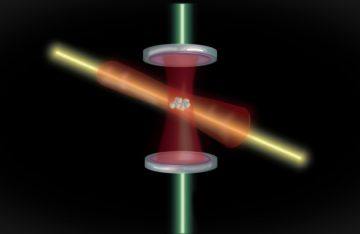From Universe Today:
 Although the modern standard is officially exact, it isn’t actually exact. Two atomic clocks of the same design keep slightly different times. By statistically comparing atomic clocks, we know they are accurate to about one second in thirty million years. That’s probably accurate enough for everyday use, but it isn’t accurate enough for some scientific purposes. If we had more precise clocks, we could use them to study everything from geology to dark energy. So there is an ongoing quest to develop a new, more accurate standard.
Although the modern standard is officially exact, it isn’t actually exact. Two atomic clocks of the same design keep slightly different times. By statistically comparing atomic clocks, we know they are accurate to about one second in thirty million years. That’s probably accurate enough for everyday use, but it isn’t accurate enough for some scientific purposes. If we had more precise clocks, we could use them to study everything from geology to dark energy. So there is an ongoing quest to develop a new, more accurate standard.
Most of the approaches look toward purely optical methods, but new work in Nature uses atoms in quantum entanglement. One of the reasons modern atomic clocks aren’t perfect is that the atoms recoil when light is emitted, which shifts the frequency of emitted light slightly. If the atom could be kept perfectly stationary when it emits light, then the frequency of the light would be exact. But quantum mechanics keeps the position of an atom a bit fuzzy, meaning that the frequency of emitted light is also a bit fuzzy. This effect is known as the standard quantum limit.
To address this problem, the team uses an effect known as quantum entanglement.
More here.
